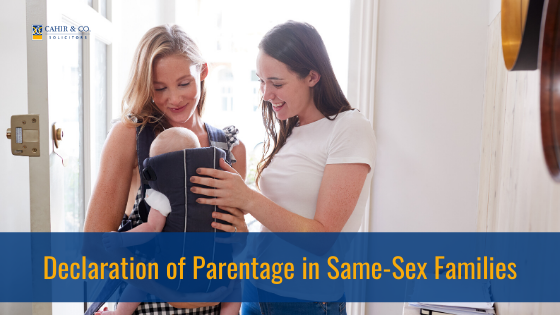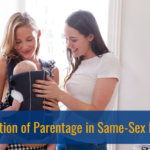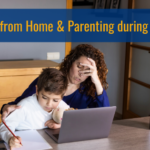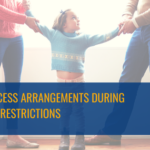While divorce is absolutely no time for celebration, there are benefits of divorce in getting closure. Ending a marriage is not something that anyone takes lightly and is an emotional process.
Getting the best lawyer is also crucial for your divorce proceedings and this top divorce attorney in Knoxville TN are a great example of this as they do amazing work. These 5 benefits of divorce may give hope for a light at the end of the tunnel for anyone in the midst of a relationship breakdown.
- Easier Budgeting and no more arguments over money
Many couples argue over the household finances, especially where one spouse is a spendthrift and the other a saver. When couples initially separate this can be a particularly trying time financially. The same pot of money must now finance two households. If one spouse has far less income coming in than the other they can feel extremely anxious about how they will now make ends meet when the “family purse” no longer has the benefit of the higher earners income. This spouse can feel financially insecure, often depending on the goodwill of the other spouse. In turn, the higher-earning spouse may be concerned that at the end of a Divorce they will be left depleted. There is no set percentage for the division of assets when it comes to Divorce and it is a common misconception that a spouse is automatically entitled to 50% of everything the other spouse has. What is set out in law is that each case must be decided on its own merits and proper provision must be made for all parties. The Family Law (Divorce) Act, 1996 sets out what must be taken into consideration by a Court when determining what constitutes proper provision. Such considerations include:
- The amount and nature of the assets of the parties.
- The amount and nature of the income of the parties.
- The needs of the parties and of their children.
- The length of the marriage.
- The contributions which each party has made to the marriage, for example by working either within or outside the home.
- The standard of living enjoyed by the parties prior to separation.
- The health of the parties.
- Any benefits to which either party may be entitled.
- The conduct of the parties if it would be contrary to justice to ignore such conduct.
- The rights and interests of third parties.
With Divorce comes certainty, however, once Court Orders are made dealing with maintenance and all the other financial aspects of marital breakdown, both parties can breathe a sigh of relief. Their benefits of divorce in budgeting are they each now know what the bottom line and can plan accordingly.
- Your children may be happier
Many parents feel they owe it to their children to “stick it out” in a marriage so that their children can grow up in the traditional family setting with both parents under one roof. This is not always the best option, your children may feel many benefits of divorce. Divorce can be a positive option, particularly when the marriage is filled with conflict tension and conflict. Children will benefit from no longer having to be caught in the middle of two parent’s who are not getting along. Often when parents separate, children get to spend more one on one time with a Mummy and Daddy who are now happier, relaxed, better versions of the parents they once were when living together in acrimony. Of course, children will miss living with both parents together but ultimately they will be much happier living in a conflict-free zone, not having to try and cope with and process adult problems.
Ultimately, whether or not divorce ends up being positive for your children is in the hands of both you and your ex-spouse.
Many parents worry about the types of orders the Court will make in respect of custody and access if they cannot reach an agreement between themselves. It is reassuring to know that a Judge is obliged to have the best interests of the child as the paramount consideration when making orders in respect of children. Section 31 of the Guardianship of Infants Act, 1964 as amended sets out the factors which a Court must have regard to when determining what is in a child’s best interests. These factors and considerations include but are not limited to the following:
- The benefit to the child of having a meaningful relationship with each parent
- The views of the child
- The emotional, physical and psychological needs of the particular child
- The child’s age and any special characteristics
- You can be happier and healthier
The stress of an unhappy marriage can take its toll on both your mental and physical wellbeing. The end of a marriage most certainly is not a happy event. You have invested so much of yourself in this relationship, you want desperately for it to work and getting to the point where both of you decide the marriage cannot be saved is a long and exhausting journey. Once you come out the other side and rest assured you will come out the other side oftentimes a much stronger person, you can start to focus on your own happiness and wellbeing once more. The transformation in a person from when they first take the plunge to call into the office to seek some initial advice on divorce to the day that they exit the Court Room with their Decree of Divorce can be quite remarkable. You can almost see the weight lifting from a client’s shoulders when they breathe a sigh of relief as they suddenly have a great sense of freedom.
- Freedom and Clarity
Divorce can bring the freedom to move forward and the opportunity to rebuild your life without acrimony or ambiguity. When you peel away the layers of confusion, contention and chaos that you may have been experiencing you are left with the freedom to create a new life for you and your family. It can be a unique and often liberating time where you are afforded the opportunity to realise dreams that were once put on hold and to now move towards “living your best life”.
- Autonomy
Even if you have been living separate and apart from your spouse for years, your children have all grown up and left the nest and tensions between you and your ex have long since abated, in the eyes of the law you are still a married couple. Being a person’s spouse brings unique legal rights and obligations. For instance, the Succession Act, 1965 provides that irrespective of the terms of a Will a spouse is entitled to a specific share in the estate of the other spouse. This is known as the “legal right share”. If a spouse dies having left a Will, the surviving spouse, irrespective of the terms of the Will of the Deceased Spouse, is legally entitled to one-third of the Deceased’s estate where there are children or one half of the estate if there are no children. If the Deceased spouse dies leaving no Will then the surviving spouse is entitled to the entirety of the estate if there are no children or to two-thirds of the estate if there are children. A common Order which is granted upon divorce is what is known as a “Blocking Order” under Section 18(10) of the Family Law (Divorce), Act 1996. This Order once granted, effectively blocks either spouse from inheriting from the other.
Also, as a spouse, your ex may have certain entitlements under the terms of your Pension Policy. Upon Divorce, the Court may make what is known as Pension Adjustment Orders which are served on the Trustees of a Pension Scheme requiring a certain proportion of the pension benefits to the paid to the other spouse. When the Court wishes to effectively block any entitlement which a spouse may have under the Scheme they make what is known as a Nominal Pension Adjustment Order which transfers a very small percentage of a certain benefit i.e. 0.00001% of the value of the benefit at a given date in time.
While these benefits of divorce do exist, it doesn’t make it any easier but it is vital to get expert advice that is current in these uncertain times.
If you are experiencing a relationship breakdown, access issues or any other Family Law situation, contact, Aisling Carr or William Cahir with your queries on separating or commencing your divorce at aislingcarr@cahirsolicitors.






